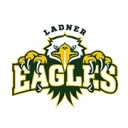Students’ Roles and Responsibilities
At école élémentaire Ladner Elementary School we feel it is desirable to have a structured environment in which students know what is expected of them. It is important that students in our school pursue their work and activities in an orderly, productive manner that allows them to do their best. The maintenance of these high standards has a positive influence on academic achievement and on the development of the virtues and values that we want to encourage in our students. Close communication and cooperation between school and home is essential for the maintenance of consistently high standards of behaviour at school.
CODE OF CONDUCT
Our school Code of Conduct supports the promotion of a caring, safe learning environment where all children are treated with respect and can achieve their personal best.
The code of conduct shall apply to all students from the time they leave home in the morning until the time they return home after school. It includes all school-sponsored activities and can include such things as on-line behaviour and other out of school activities where it affects the safe and caring environment of the school.
GUIDELINES FOR SUCCESS
- We all work together to make our school a safe, happy place.
- We recognize good effort.
- We help others.
- We are polite and considerate.
- We respect each others right to learn.
- We respect school property and the property of others.
- Conduct themselves in an appropriate manner when going to and from school, within school, on school grounds, during extended school activities and on school buses
- Apply themselves to the best of their ability in all aspects of their education
- Attend school and classes regularly and punctually
- Be respectful of the thoughts, feelings and cultures of others
- Respect the rights and property of others
- Contribute positively to a safe, caring and orderly school
- Behave in an ethical and lawful manner
- Report to a responsible adult, incidents of threats, bullying, harassment, violence or intimidation
- Interference with the learning of others
- Use of inappropriate or abusive language
- Threatening, harassing, intimidating, assaulting or bullying, in any way, any person within the school community including aggressive behaviours such as “cyber” hate messaging and websites created in the student’s home, in cyber cafes or other settings
- Possessing weapons or dangerous articles
- Possession, use, or distribution of illegal or restricted substances
- Theft of or damage to property
- Any efforts to cause harm or discriminate against another person based on, but not limited to race, religion, gender, physical or intellectual disability, marital or family status, sexual orientation or age.
- Gang related behaviours
- Acts of retribution toward a person who has reported incidents
- Acquire greater knowledge and understanding about their personal behaviour and its impact on others
- Learn and utilize appropriate decision-making strategies
- Demonstrate increasing self-discipline
- Take increasing personal responsibility for their actions and learning
- Be thoughtful, consistent and fair
- Seek to prevent a recurrence of the offense
- Teach acceptable social behaviour rather than be merely punitive
- Provide means for restitution and restorative actions
- Involve the offender in determining a corrective plan of action
- Parents of student in breach of the Code of Conduct
- Parents of student victim(s)
- School and District personnel – where appropriate
- Police and/or other agencies – where deemed appropriate or where required by law
- All parents of the school community – when deemed important to reassure members of the school community that school and district officials are aware of a serious situation or incident and are taking appropriate action to address it
- When the breach of the Code of Conduct is criminal in nature, police will be consulted prior to public notification
Conduct Expectations
Acceptable Conduct supports a positive learning environment.
It is expected that students will:
Unacceptable Conduct interferes with a positive learning environment.
Some examples of unacceptable behaviours include:
The Code of Conduct recognizes that as children grow and mature, they are more able to make appropriate decisions and to be responsible for their actions. As students progress through school, they are expected to:
Consequences
When determining consequences, and in compliance with Delta School District Procedure #1131.1, consideration is given to the maturity as well as the intellectual, social and emotional capacity of the student along with the severity and frequency of the misbehaviour.
Consequences should where appropriate, follow District procedures and will:
And where appropriate
Notification
It is understood that communication is essential to the home and school partnership. Notification will be given to the school’s community of the school’s Code of Conduct. As well, notice will be given to the parents and students within each school of the range of responses that schools may apply to breaches of the Code of Conduct including threat making behaviours.
Therefore, for breaches of the Code of Conduct, notification may occur as follows:
See also:
